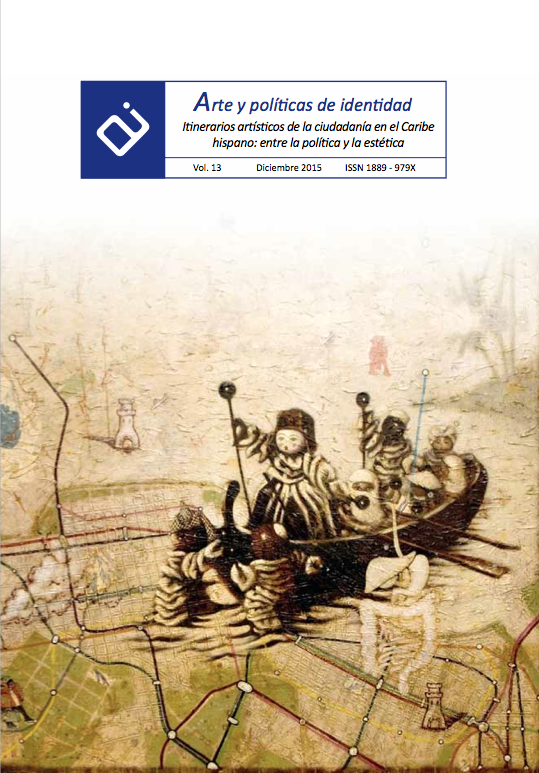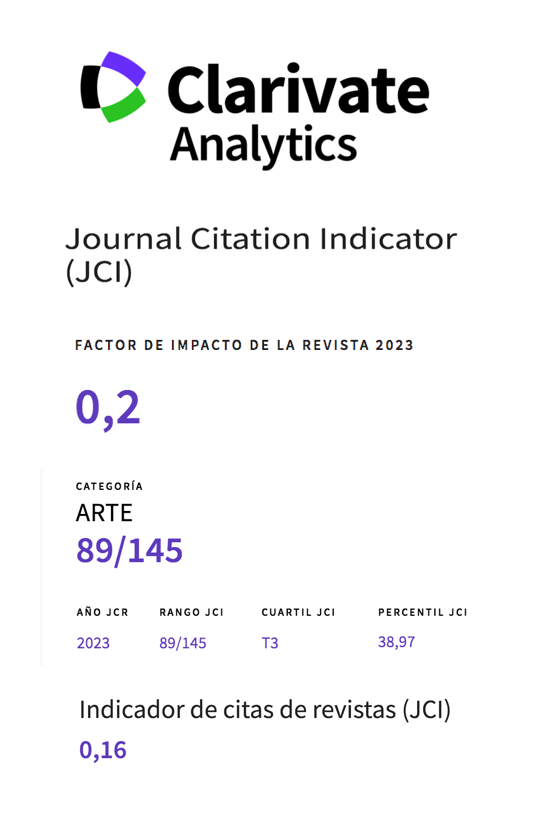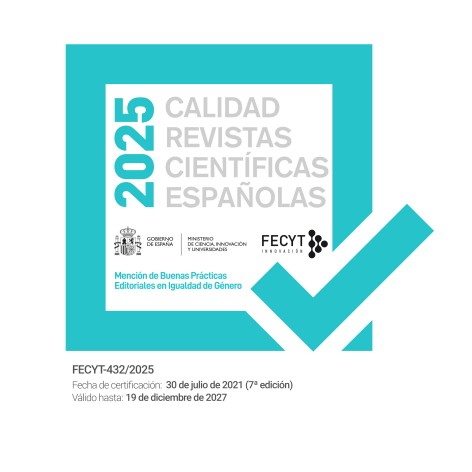Intersections Between Gender and Race in the Representations of the Dominican Contemporary Art.
Abstract
The strong Catholic tradition, crisis in public education system, the stratification of society, machismo, violence, superstition, poverty, racism and border conflicts with Haiti, migration and diasporic communities in New York and Europe, are factors which in combination have transformed Afrodescendant Women a heroic figure between fragility and resistance in Domincan contemporary society. It is risky to speak of contemporary Dominican art in terms of an Afrodescendant political movement or feminist agency. However, different artists explore aesthetic and social areas focused on the politics of difference in Dominican society today; as well as on the historical definitions of the “Dominican” identity that have placed the Afrodescendant voices and the representations from the African diaspora on a subaltern position. This article examines the enunciation place from different artistic practices that interrogate the Colonial-Modern Gender System as a means of articulating a performativity that questions the essentialism on the identity idea through representations of race, class, gender and sexuality.Downloads
-
Abstract745
-
PDF (Español (España))914
References
Bhabha, H. (1990). Introduction: Narrating the nation. En H. Bhabha (Ed.), Nation and Narration (pp. 1-7). Londres: Routledge.
Butler, J., Aronowitz, S., Laclau, E., Scott, J., Mouffe, Ch., Schirmacher, W., & West, C. (1992). Discussion: The Identity in Question. October (61), 108-120.
Candelario, G. (2005). Miradas desencadenantes: los estudios de género en la República Dominicana. Santo Domingo: Instituto de Tecnología.
Escobar, A. (2003, enero-diciembre). «Mundos y conocimientos de otro modo». El programa de investigación de modernidad/colonialidad latinoamericano. Tabula Rasa (1), 51-86.
Gilroy, P. (1993). The Black Atlantic: Modernity and Double Consciousness. Cambridge: Harvard Univeristy Press.
Glissant, É. (2010). El discurso antillano. La Habana: Casa de las Américas.
Grosfoguel, R. (2006, enero-junio). La descolonización de la economía política y los estudios postcoloniales: Transmodernidad, pensamiento fronterizo y colonialidad global. Tabula Rasa (4), 17-48.
Hall, S. (2010). Sin garantías: Trayectorias y problemáticas en estudios culturales. Popayán: Envión.
Henríquez, P. (1978). La utopía de América. Caracas: Biblioteca Ayacucho.
Jarne, R. (2008). Jaime Colson en el Museo Bellapart. En Colson errante (pp. 19-108). Santo Domingo: Museo Bellapart.
Lugones, M. (2008). Colonialidad y Género. Tabula Rasa (9), 73-101.
----- (2008a). Colonialidad y Género: hacia un feminismo descolonial. En W. Mignolo (Comp.), Género y Descolonialidad (pp. 13-42). Buenos Aires: Ediciones del Signo.
Pineda, J. (Septiembre, 2012). Another Fairy Tale. En Jorge Pineda: Shadows and Other Fairy Tales. Conferencia llevada a cabo en la exposición homónima, The Hunter College East Harlem Art Gallery, Nueva York.
Quijano, A. (2000). Colonialidad del poder, eurocentrismo y América Latina. En E. Lander (Comp.), La colonialidad del saber: eurocentrismo y ciencias sociales. Perspectivas Latinoamericanas(pp. 201-246). Buenos Aires: CLACSO.
Reid, G. (2007). Afro-Latinoamérica 1800-2000. Madrid/Frankfurt: Iberoamericana/Vervuert.
Tolentino, M. (2008). Las pasiones de Colson. En Colson errante(pp. 112-138). Santo Domingo: Museo Bellapart.
Works published in this journal are subject to the following terms:
- The Service of Publications from the University of Murcia (publishing house) keeps the published works’ copyrights, and favors and allows the reuse of these works under the license indicated in point 2.
- Works are published in the journal’s online edition under the license Creative Commons Reconocimiento-NoComercial-SinObraDerivada 3.0 España(texto legal). They can be copied, used, disseminated, transmitted and publicly exhibited, as long as: i) the author and original source of publication are cited (journal, publishing house and work’s URL); ii) they are not used for commercial purposes; iii) the existence and specifications of this license are mentioned.
3. Conditions for auto-file. It is allowed and encouraged that authors share electronically their pre-print version (the pre-reviewed version) and /or post-print version (the reviewed and accepted version) of their Works before the publication, since it promotes its circulation and dissemination. RoMEO color: green.










